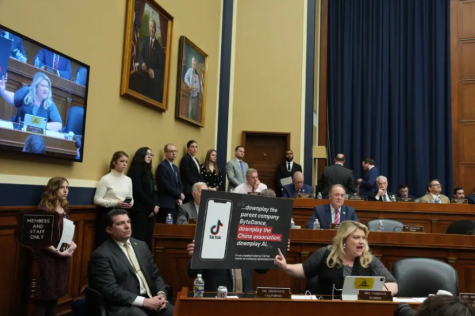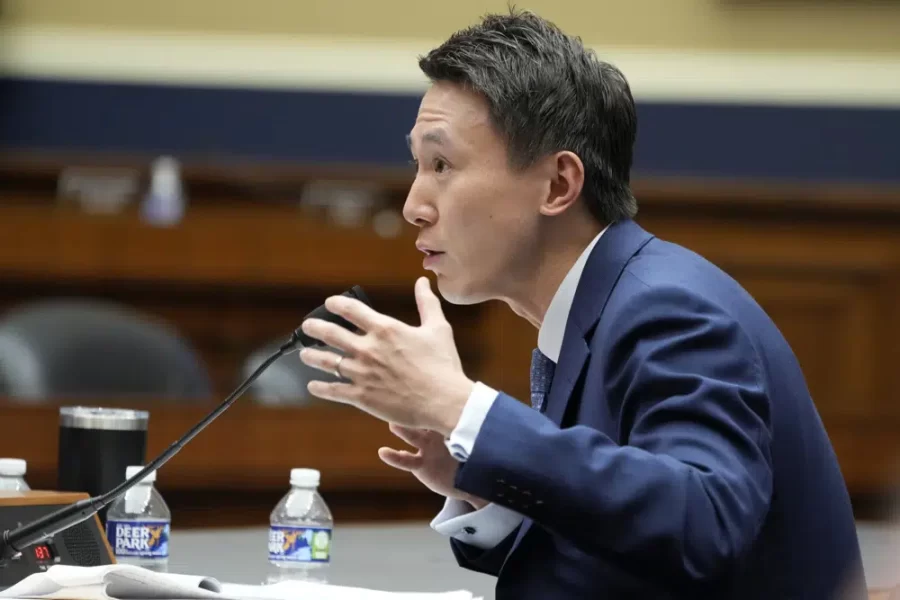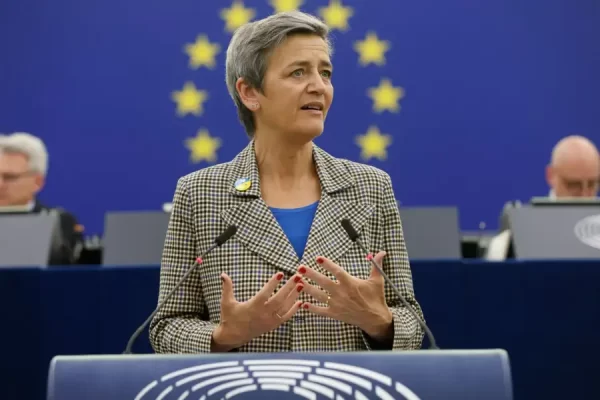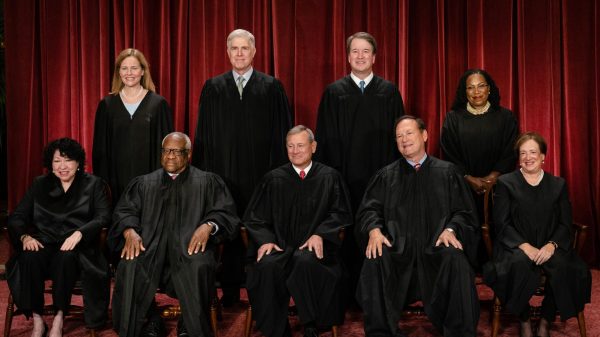TikTok CEO testifies before U.S. Congress
TikTok’s CEO, Shou Zi Chew, testified before the United States Congress on Mar. 23, 2023 to defend TikTok against privacy violation allegations.
TikTok is owned by ByteDance, a Chinese company, and became popular in 2020. It is a social media platform that allows people to create videos anywhere from 10 seconds to 10 minutes.
Although it is popular among teenagers, the accusations of privacy breaches led to the U.S. government banning the app among government officials in early 2023.
“The White House gave government agencies 30 days to ensure they do not have TikTok on federal devices and systems,” said Reuters.
Congress is now trying to pass a bill that would ban TikTok in the U.S. altogether. This bill is addressed as “The RESTRICT Act.”
“Republicans [and] Democrats agreed this is a threat, so we can’t ignore it just because of concerns about alienating some teenagers on this app,” said Rep. Mike Gallagher.
During the public hearing in Capitol Hill, Washington last Thursday, Chew tried to prove that locations are not revealed through the app and that it does not pose any security threats to the U.S.
“TikTok itself is not available in mainland China, we’re headquartered in Los Angeles and Singapore,” Chew said. “Still, we have heard important concerns [about foreign access to U.S. data].”
Chew also mentioned that they are not dismissing the concerns of the U.S. government and have approached it with real action.
When Rep. Debbie Dingell asked whether TikTok has ever provided the Chinese government with precise GPS information collected from U.S. users, Chew responded, “That I can give you a straight up no.”
Lawmakers asked Chew whether or not China was spying through TikTok multiple times and when he tried to answer, they interrupted him, demanding a yes or no answer.
“ByteDance is not owned or controlled by the Chinese government,” said Chew. “It is a private company.”
Chew also argued that banning TikTok could be a violation of free expression.
Rep. Kat Cammack displayed a TikTok that implied violence towards the House Energy and Commerce Committee and said, “[This] is a direct threat to the people in this room and yet it still remains on the platform. You expect us to believe that you are capable of maintaining the data and privacy of 150 million Americans?”
When Chew asked whether he could respond to this, he received a “No, we’re going to move on.”

The hearing continued for five hours, ending with lawmakers unsatisfied with Chew’s answers.
Other concerns about this app included data theft, negative influence on teenagers, and the spread of political misinformation or manipulation. Some lawmakers even claimed that the app is an extension of the Communist party.
“The Communist party doesn’t have voting rights in ByteDance,” said Chew in response to this concern.
As of now, it is still uncertain whether the bill will be passed with lawmakers still angry about Chew’s answers.
“I’m not convinced that the benefits outweigh the risks,” said Rep. Frank Pallone. “The combination of Tik
Tok’s Beijing communist-based China ownership exacerbates its danger to our country and to our privacy.”






